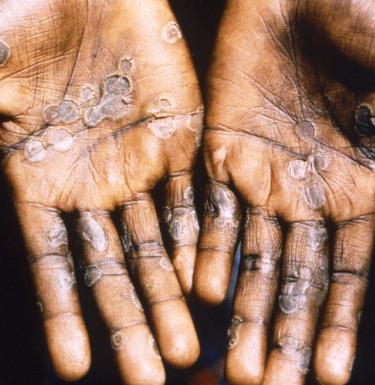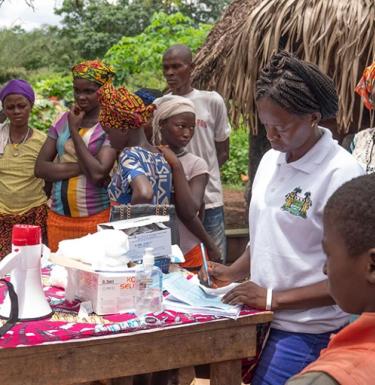
What the Ohio train derailment teaches us about poisoning public trust
One problem was that the announcement lacked nuance and transparency, according to James Fabisiak, associate professor of environmental and occupational health.
'It's the greatest living experiment': Pitt Men's Study marks 40 years of AIDS research
Forty years later, the Pitt Men’s Study is one of the longest-running studies on HIV and AIDS in the country.

How a new medical TV show could influence public perception
I think this [new show] will be a really good opportunity to promote health messages, create dialogue and ultimately inspire people to join medicine and get involved in health and their communities,” says assistant professor of Behavioral and Community Health Sciences Beth Hoffman.
Pitt Public Health’s Alison Sanders awarded Pitt Momentum Funds
A research team led by Assistant Professor and Vice Chair of Research in Environmental and Occupational Health Alison Sanders, PhD, was awarded a scaling grant from the 2023-24 Pitt Momentum Funds.
Women’s History Month role models
Dean Lichtveld’s role model is her mother, Olga Alma Tjon, who grew up as the oldest of 11 children in Suriname.

Live Well Allegheny REACH project brings health resources to priority Black neighborhoods
“This was a concerted effort with unapologetic funding from the federal government for communities that suffer most from health disparities,” says Tiffany Gary-Webb professor of epidemiology.

Why the mpox outbreak in the Democratic Republic of Congo is worrying disease docs
"It's just a matter of time, if nothing is done, that the transmission crosses the border in the African region and, again, globally," says Jean Nachega associate professor of Infectious Diseases and Microbiology and Epidemiology.

Meet the recipients of the 2024 Provost’s Award for Excellence Undergraduate Advising
Congratulations to Adrian Gonzales, director of undergraduate advising, on receiving the Provost’s Award for Excellence in Undergraduate Advising!

Sharing stories and creating space
Experts in community engagement share insights at Pitt Public Health symposium
When asked for words of wisdom gleaned from conducting community-engaged work, experts from academia and public health advocacy spoke of truth telling, finding joy, being present, remaining flexible and showing compassion.

Pitt receives nearly $870,000 in grants to study aftereffects of East Palestine train derailment
“These two grants are very much addressing community concerns,” said Dean Maureen Lichtveld.

Echoes of the East Palestine derailment
For a close-knit, family-centered community like East Palestine, Dean Lichtveld says that forced migration is exceptionally traumatic.

Massive public-health experiment sends vaccination rates soaring
“The investigators made a great effort to bring vaccines to remote communities,” says Jean Nachega associate professor of Infectious Diseases and Microbiology and Epidemiology.

Talking with Dr. Rebecca Thurston on how sleepless nights could be putting your heart at risk
Rebecca Thurston, professor of epidemiology joined KDKA to talk about a recent study at Pitt that followed middle-aged women from across the US for more than 20 years.

It takes two: Undergraduate students thrive at Pitt Public Health
Two School of Public Health undergraduate students presented scientific posters of their research at the annual meeting of the Society of Toxicology, on March 10-14, in Salt Lake City.

How quickly could measles outbreak spread? Here’s what ‘worst-case scenario’ looks like
Now that there’s a measles outbreak in Florida, Mark Roberts, professor of health policy and management, is considering updating his simulator to show the measles risk in Florida post-COVID pandemic.